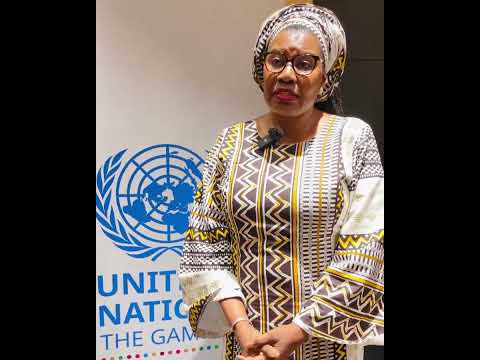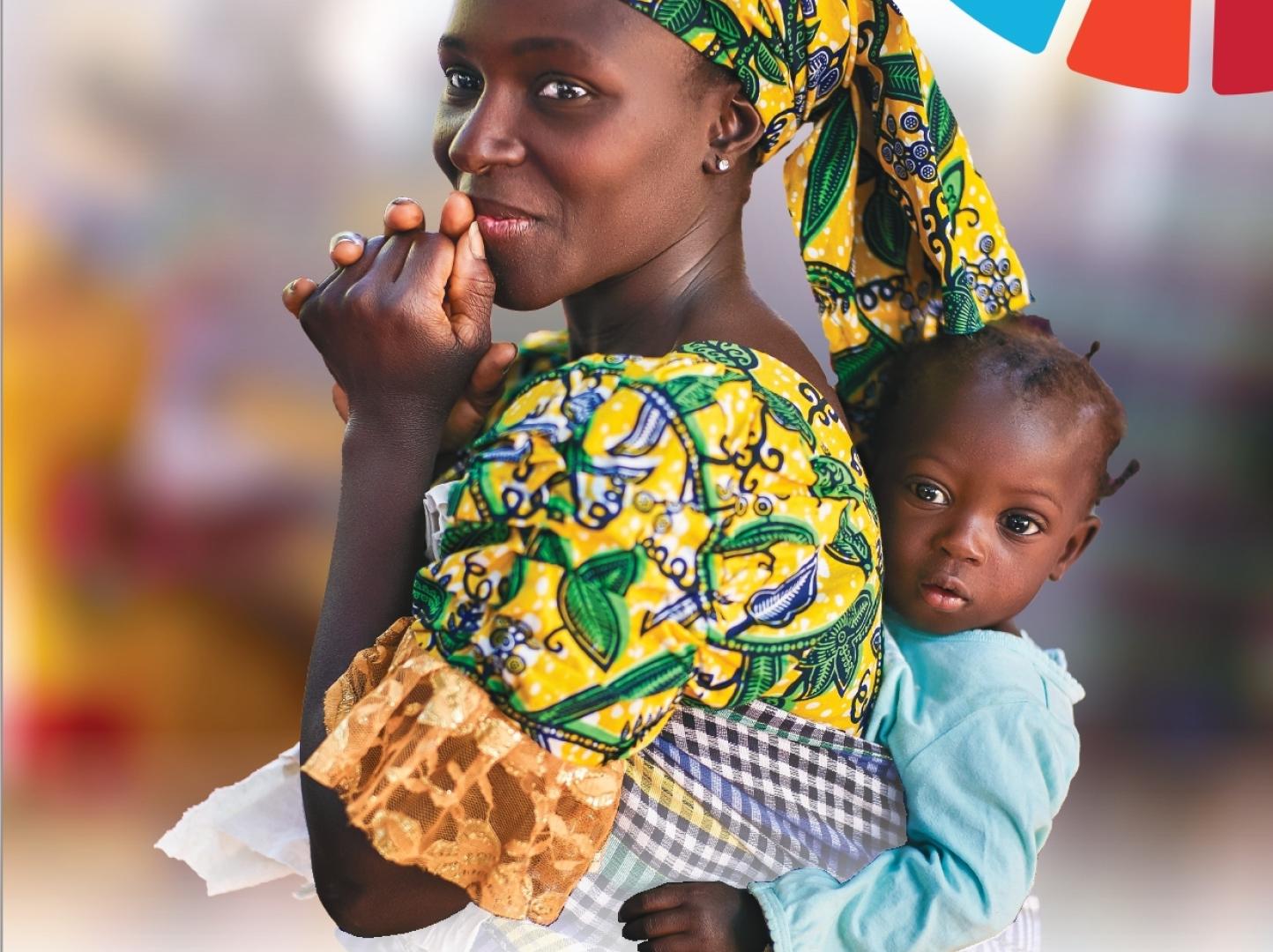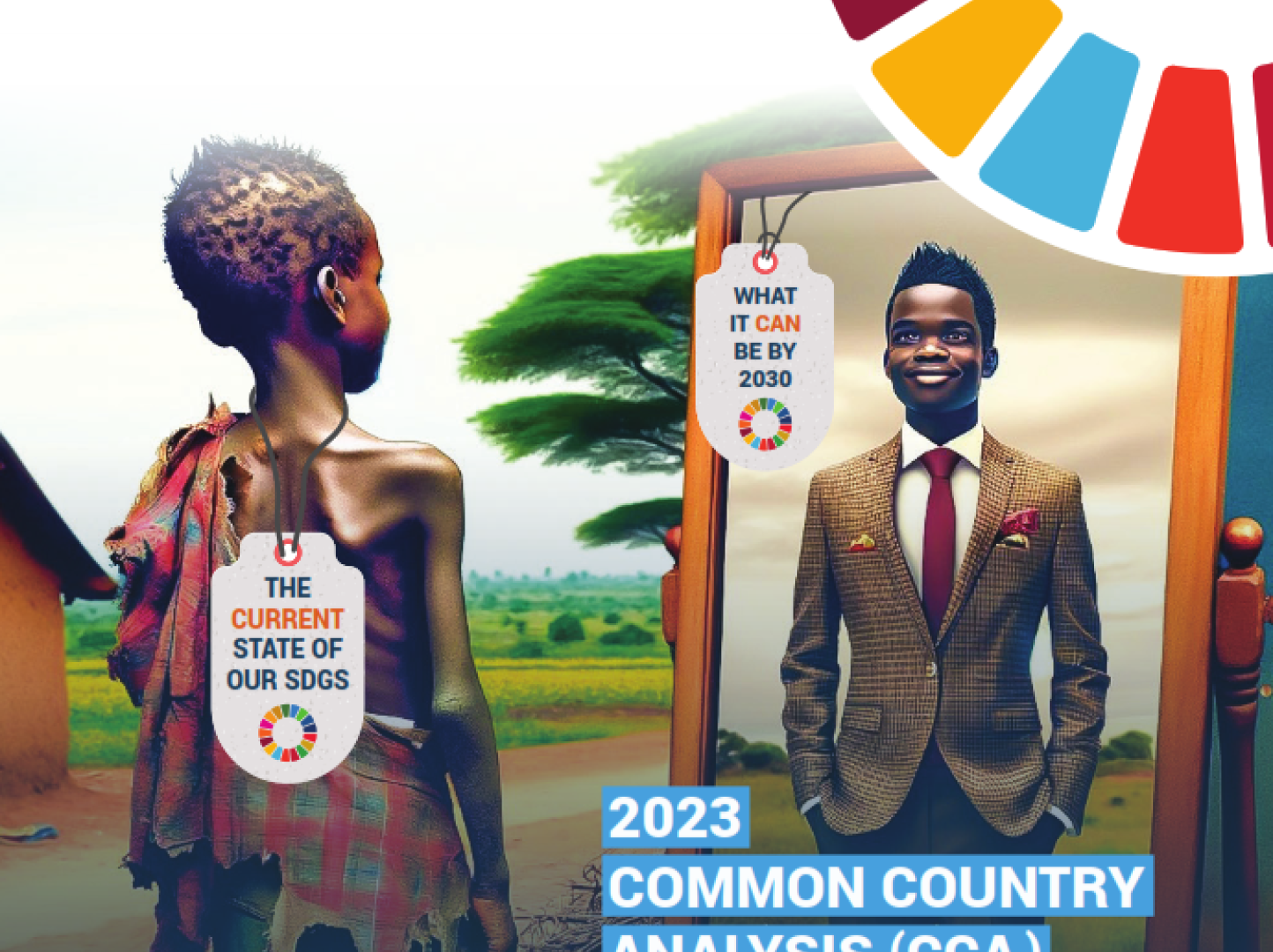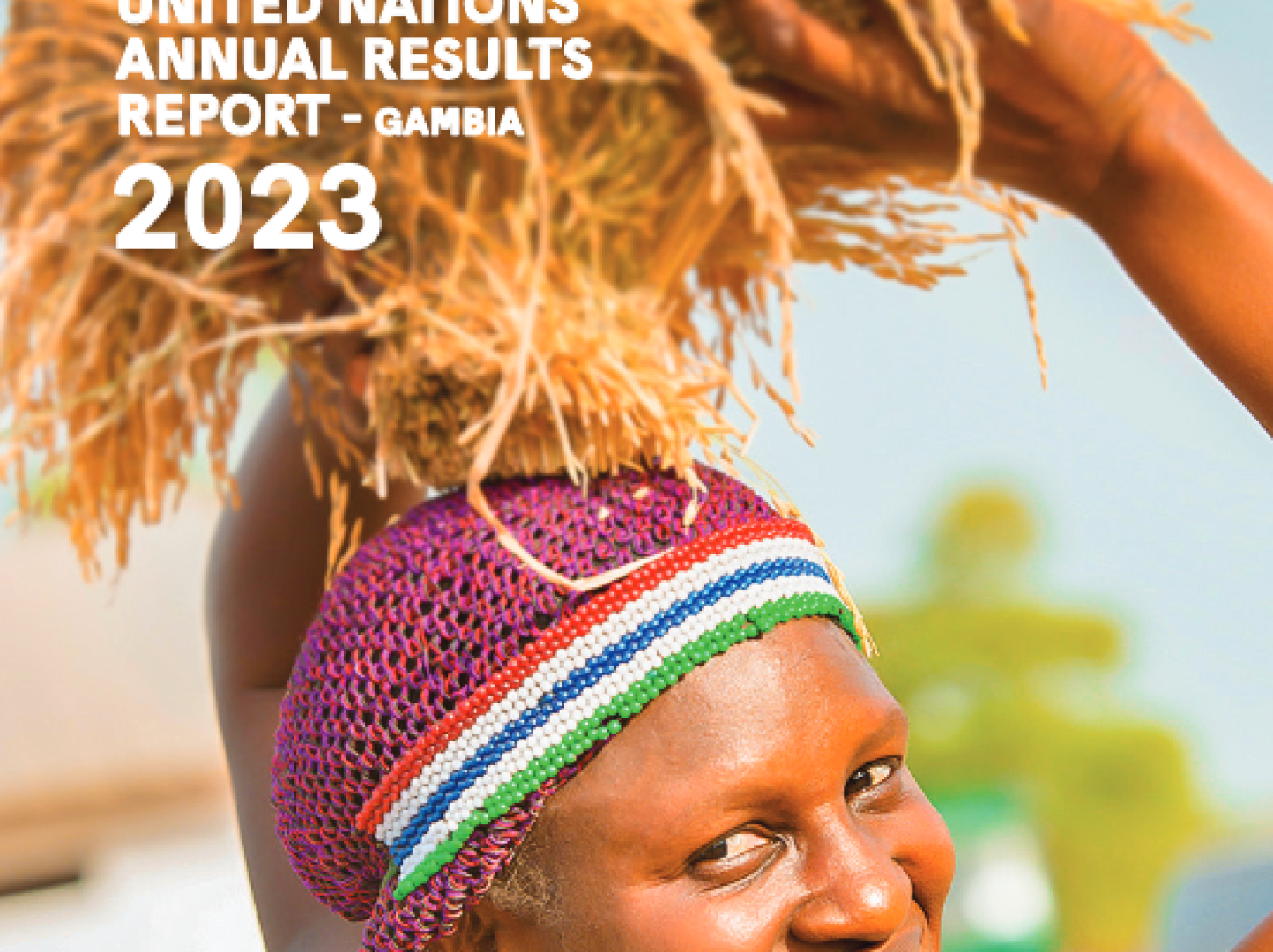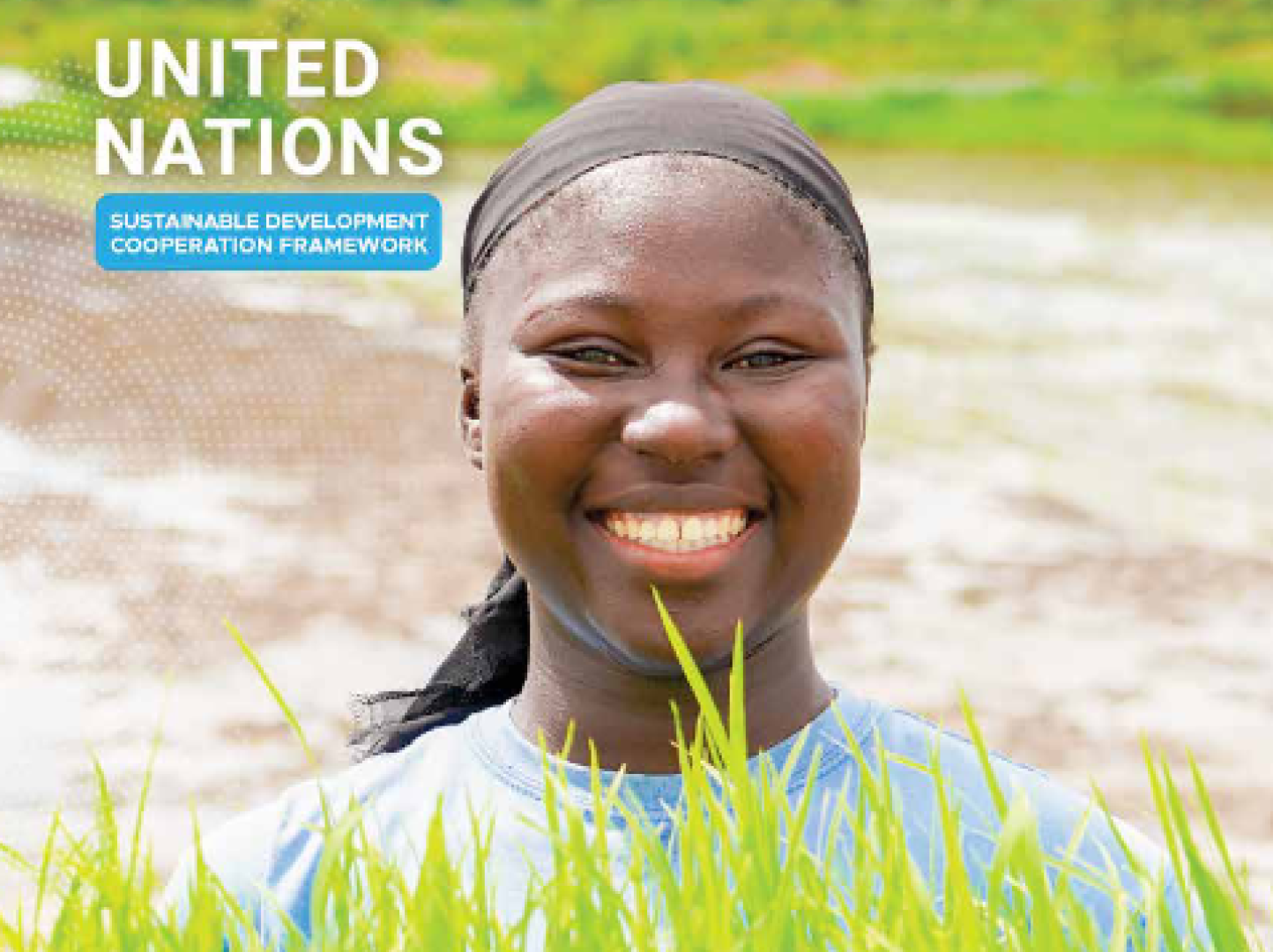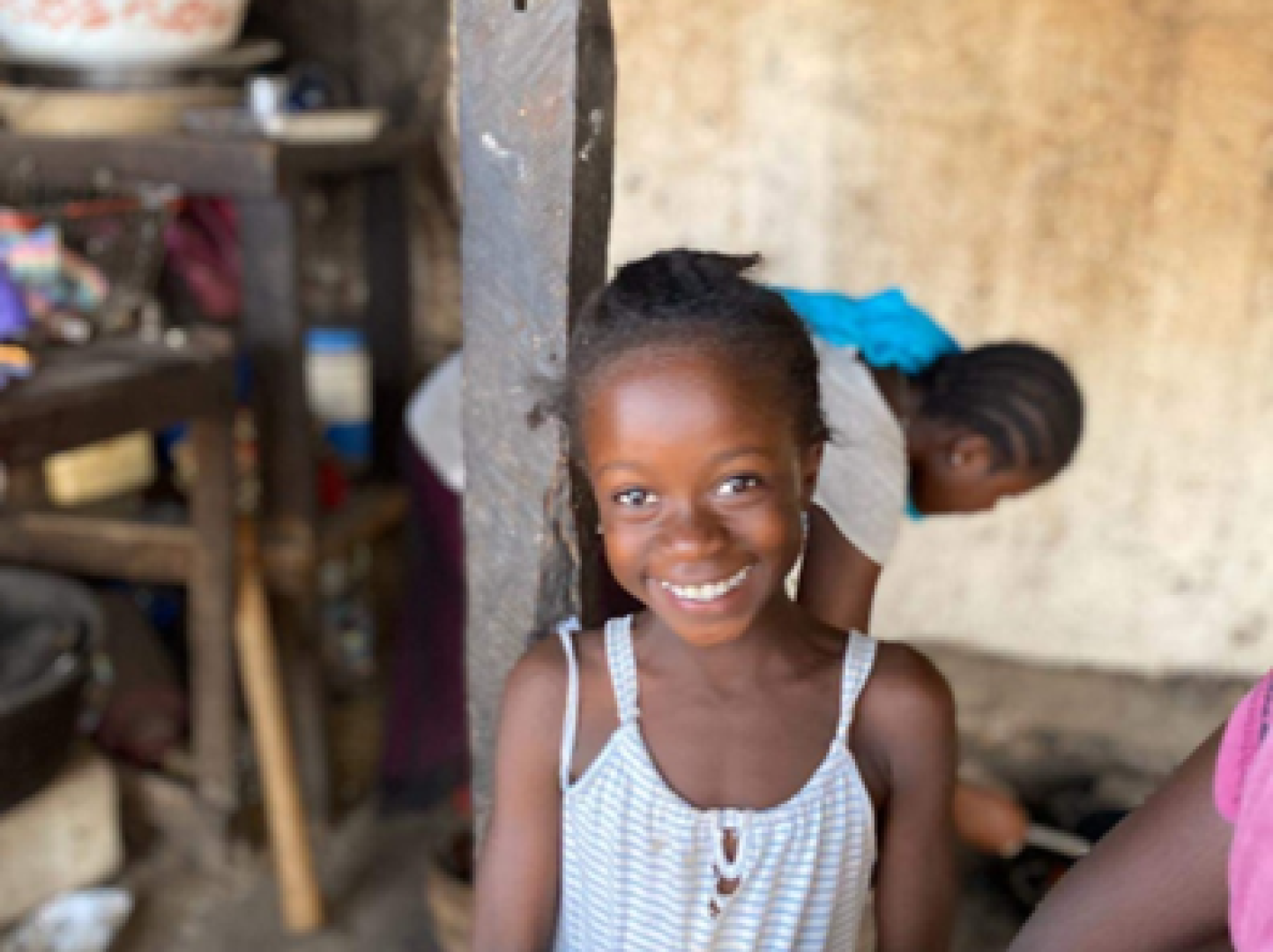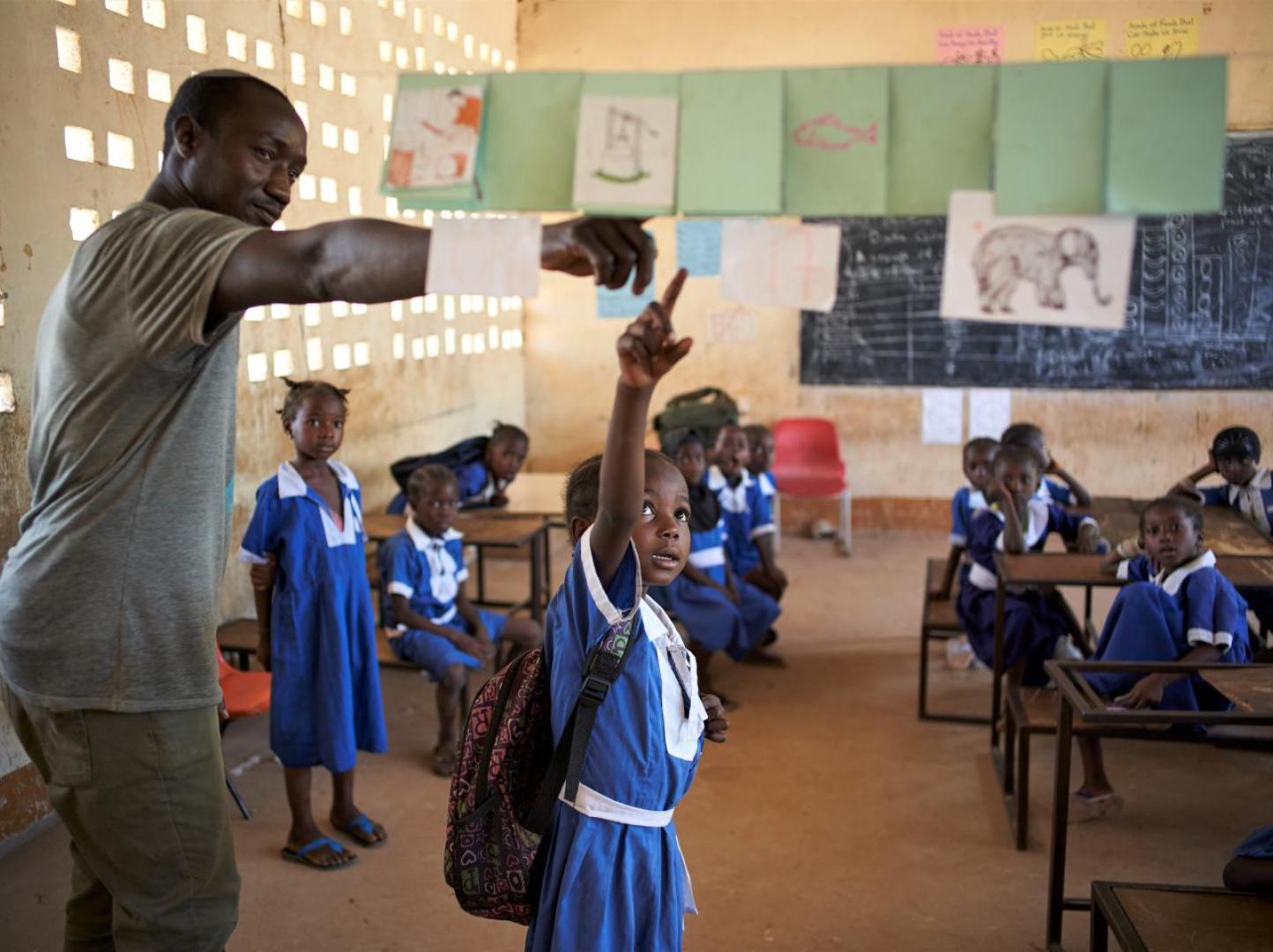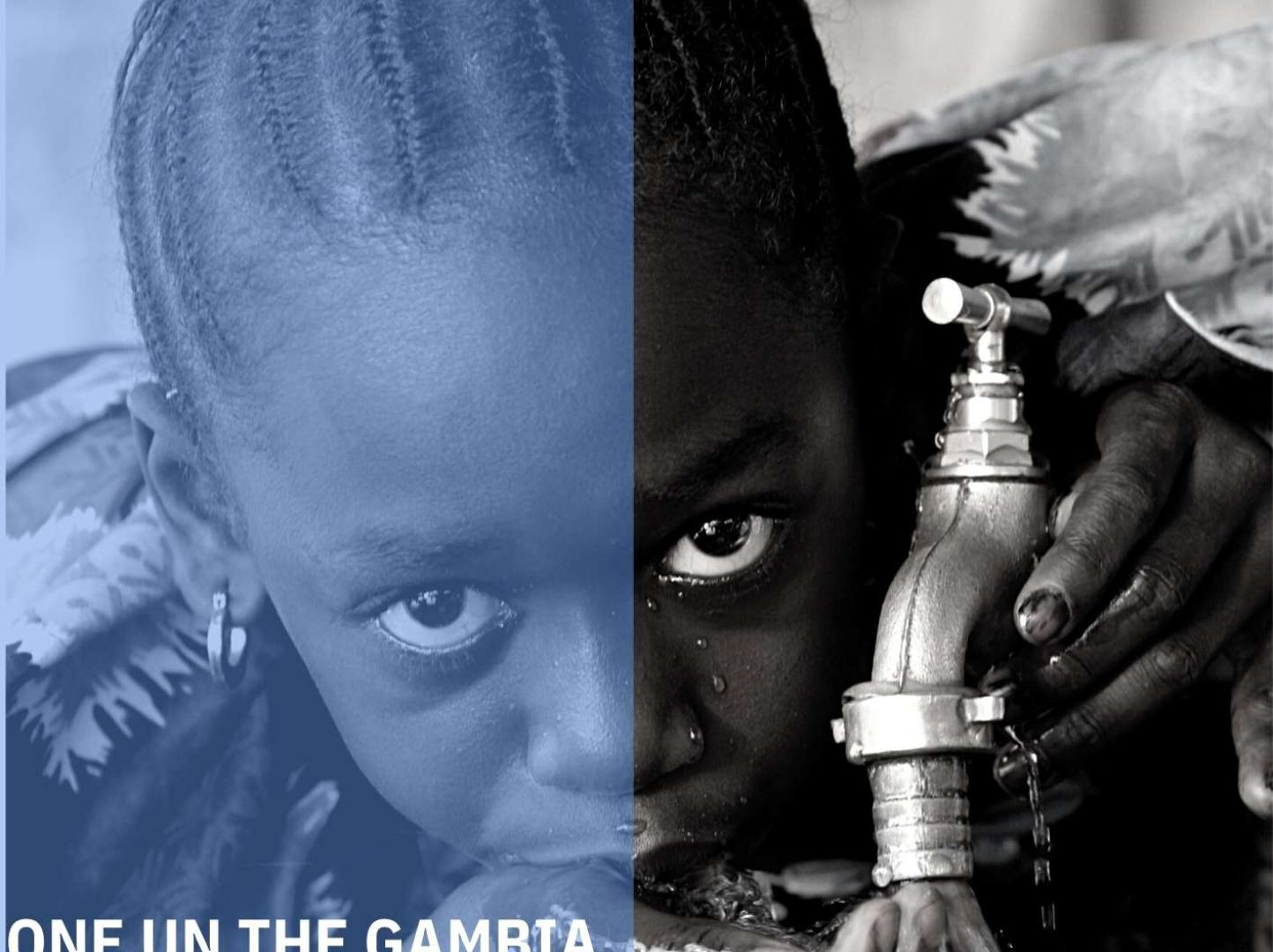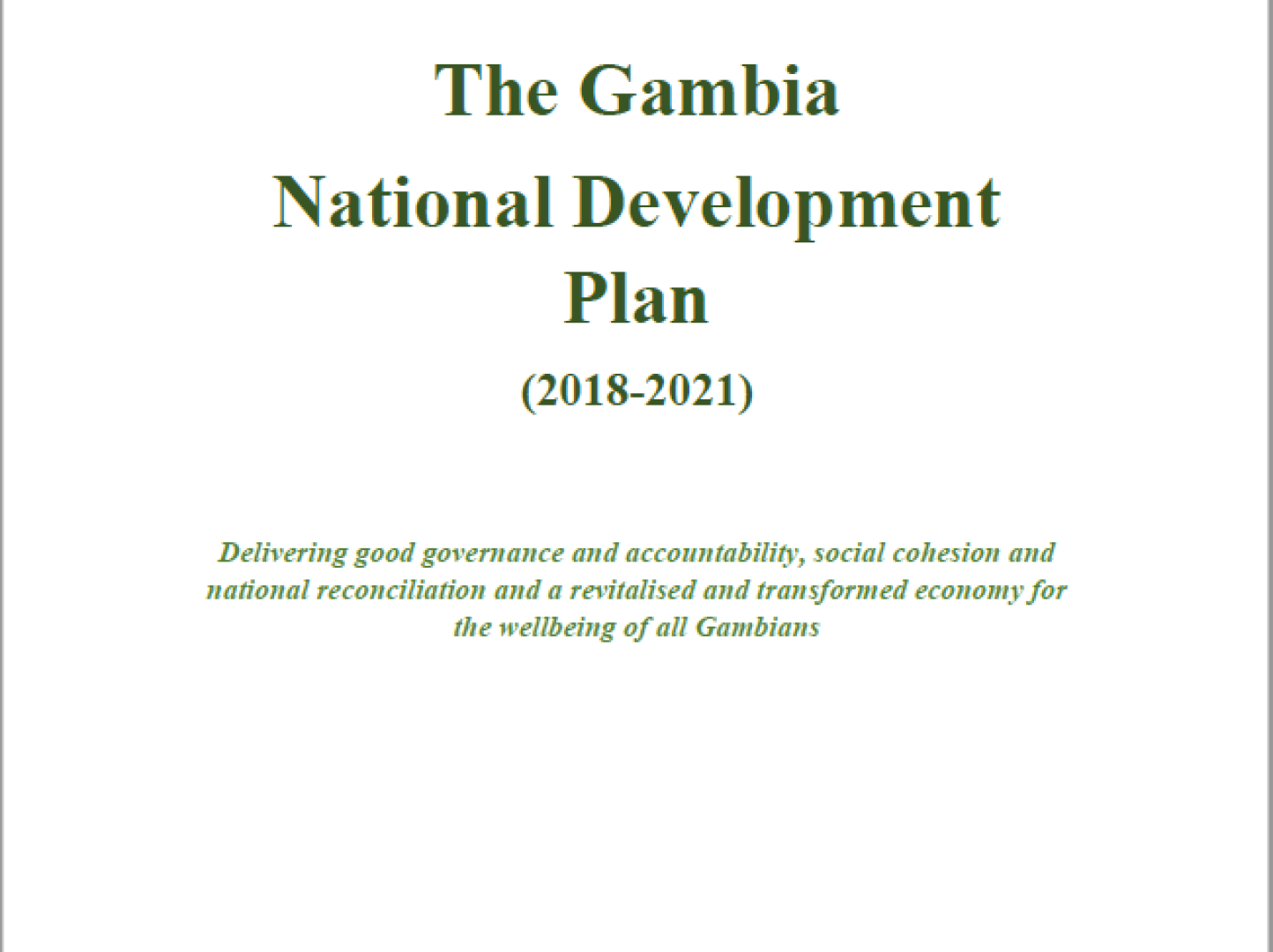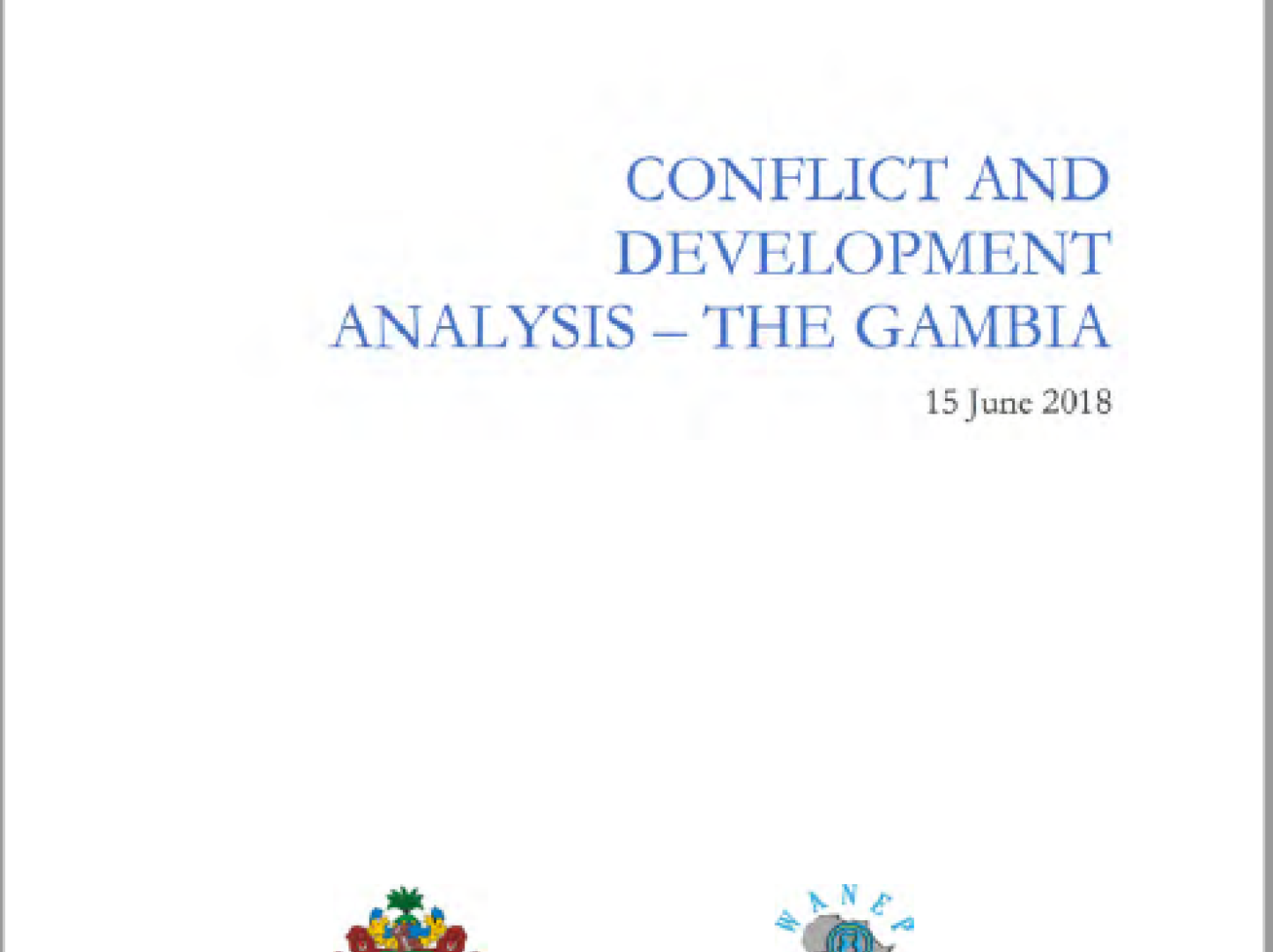Latest
Press Release
09 January 2026
Strengthening Agricultural Data Collection Through Improved Operational Mobility in The Gambia
Learn more
Press Release
10 December 2025
Press Release Human Rights Day 2025
Learn more
Press Release
05 December 2025
Peacebuilding Fund Partners Mission to The Gambia
Learn more
Latest
The Sustainable Development Goals in The Gambia
The Sustainable Development Goals are a global call to action to end poverty, protect the earth's environment and climate, and ensure that people everywhere can enjoy peace and prosperity. These are the goals the UN is working on in The Gambia.
The Resident Coordinator leads the UN Country Team (UNCT) and ensures that the UN agencies support the national development priorities through three UNDAF outcome areas.
These are: (i) Governance, Economic Management and Human Rights supporting initiatives aimed at strengthening national institutions responsible for economic and financial management and oversee reforms to guarantee people their human rights; (ii) Human capital development supporting access to education and health care services, improving equitable quality and access to water, sanitation and hygiene, social protection and gender and youth empowerment; and (iii) Sustainable agriculture, natural resources, environment and climate change management covering agricultural production and productivity, food and nutrition security, environmental management, mainstream climate change in environment and disaster risk management.
The UN Country Team coordinate their work through joint Work Plans.
Publication
31 March 2024
Annual Results Report 2023
On behalf of the UN Country Team (UNCT) in The Gambia, we are pleased to present the 2023 One UN Annual Results Report. The report details how the UN collaborated with the Gambian government and development partners, working together to fulfil the humanitarian-development-peace nexus, at national level as well as integrating the UN Integrated Strategy for the Sahel (UNISS) at the regional level.
1 of 5
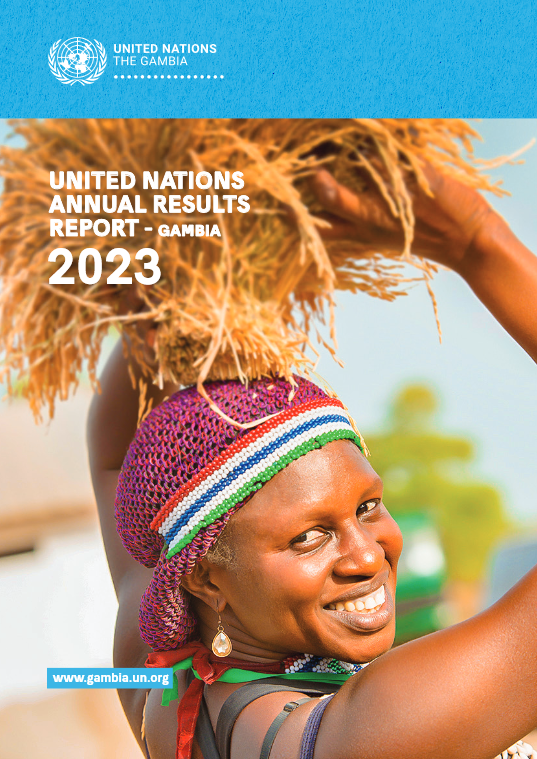
Story
01 June 2023
Changing lives in The Gambia: A UN Resident Coordinator blog
"When my mandate began, in 2018, it was not long after the end of the dictatorship [The two-decade rule of Yahya Jammeh]. The new Government was already embracing several reforms simultaneously, reviewing the constitution, the judiciary, and the security sector, and the UN had allocated funds for peacebuilding.
Truth and reconciliation
An important development was the establishment of the Truth, Reconciliation, and Reparations Commission (TRRC), with the backing of the UN and other partners.
People were enthusiastic to embark on the Commission, which has been very important for the country. Expectations were high from the victims, from the population, but also from different partners. It was important that it should be a Gambian-driven process, to avoid any influence from outsiders. We helped to set it up and provided the necessary expertise to run it.
The Ministry of Justice needs to be strengthened, because they are leading that process, and this is the first time that they have had to face a case like this. Here again, we’re providing the expertise to work on a roadmap that will lead to implementation of the Commission recommendations.
We’re involved in communications connected with the process: we want to ensure that the communities, local governments, and civil society all know what role they have to play, and manage expectations. These reforms are not going to happen in one day, it will take many years, and we need to make sure that is understood.
Now it’s time to put reforms into practice. So far, the Government has released a white paper approving almost all of the recommendations. The COVID-19 pandemic slowed the process, but I think that they are still committed to do more.
Laying strong foundations
It’s crucial to have a government that shows leadership. If not, you can outline a vision for where you think the country should go, but you won’t get anywhere.
We have supported the Government’s creation of a Department for Strategic Planning and Delivery, within the office of the President. We have trained the staff, and shown them best practice in other countries.
When we arrived, there was no Minister for Gender, so we advocated for a new ministry to be established, and we are seeing progress in terms of women’s empowerment.
Coming out of a twenty-year dictatorship, where human rights were abused, we supported the creation of a National Human Rights Commission, which is fully functional and, in many ways, a centrally important institution, which will monitor the implementation of the TRRC.
Going forward, it’s crucial for The Gambia to succeed in building strong institutions, something which is true for all countries. If institutions are weak, you can’t implement any plans, and you waste resources.
I think that this country is moving in the right direction. We have many more partners now, and the donor community is growing. After a five-year period, the transition is nearly complete, and we have helped the Government to lay the foundations for most of the reforms, policies, and strategies.
Changing lives for the better
Aside from supporting the reforms, we’ve been an active partner in developing the economy, empowering women, and climate action.
In terms of the economy, where tourism plays an important role, UN agencies have focused on providing training for young people and vulnerable groups such as returning migrants, and giving them seed capital to start their own businesses. Often, returning migrants feel like a burden on their families, but with our help many of them have been able to thrive.
Unfortunately, this is a country where there is significant violence against women, including female genital mutilation. Sometimes women don’t want to talk about the violence they suffer, so we have set up hotlines they can call, and built centres where they can go to be treated, and receive support.
The climate crisis is affecting The Gambia, particularly in terms of flooding; last year was the worst flooding experienced here in 38 years. It may not be on the scale of the floods seen in Pakistan but, for a small country with a small population, it made a big impact.
Our agencies provided food and shelter for those displaced by the flooding, and providing clean drinking water, but we are also helping the population to adapt, and become better prepared before the next floods arrive.
I’m confident that we have changed lives for the better in The Gambia. We’re still in the early stages, but I believe that we’ve created solid foundations for development, and that we will see even greater impact in the next five years, and see the country develop in a cohesive manner, in all regions of the country, with no one left behind."
The UN Resident Coordinator, sometimes called the RC, is the highest-ranking representative of the UN development system at the country level.
In this occasional series, UN News is inviting RCs to blog on issues important to the United Nations and the country where they serve.
Learn more about the work of the UN in The Gambia here.
1 of 5
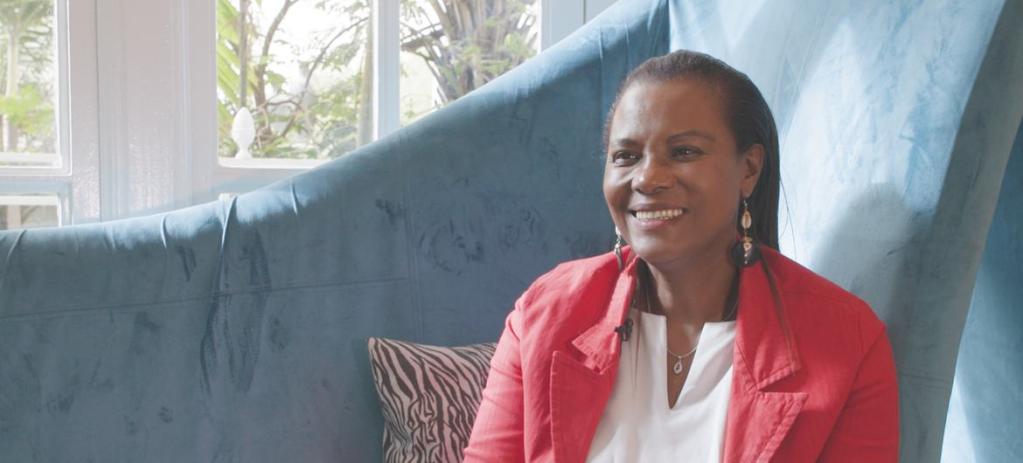
Take Action
24 November 2020
Decade of Action to deliver the Global Goals
With just 10 years to go, an ambitious global effort is underway to deliver the 2030 promise—by mobilizing more governments, civil society, businesses and calling on all people to make the Global Goals their own.
1 of 5
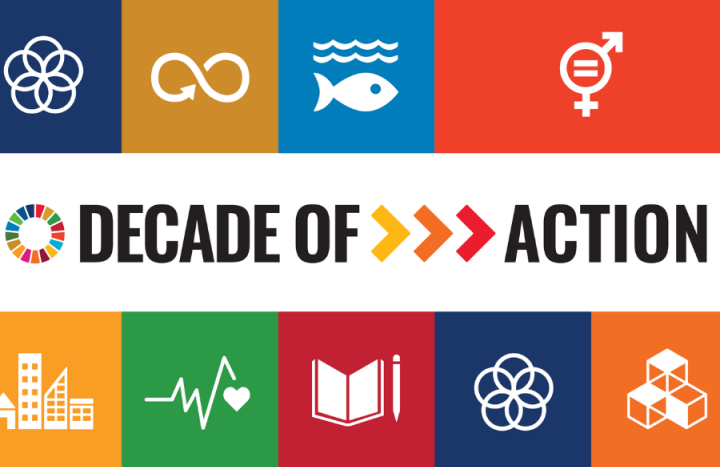
Story
01 June 2023
First Person: Hatching a plan for success in rural Gambia
Gidom Sabally’s high school education was cut short because his family could no longer afford school fees. For many years, he struggled to find work as an unskilled labourer.
Now in his 40s, Mr. Sabally was able to take up the opportunity of free technical training, provided by a UN-led training programme, in 2018; having completed the course, he found work as an engineer, supervising the construction of culverts – raised roads that allow his community to cross land that is inundated by floods, a consequence of climate change that is affecting many parts of the country.
He explained to UN News that, with the money he has saved, he has been able to branch out, and become a successful poultry farmer.
“I live in my family compound in Brikamaba village, where I was born, in the Central River Region of Gambia. There are 14 of us, my brothers and sisters, their children, and my father.
Life is difficult here. There aren’t enough jobs and, when there is work, it is usually only available for a short period of time. So, people here find it hard to feed their families.
When I dropped out of high school, I was sad. I knew that, without education, it would be very hard for me to learn the skills I would need to become a professional and advance in life. For many years it was difficult for me to find work.
Breaking ground on a new career
In 2018, a friend of mine heard a radio advertisement about a free technical training course, run by the UN, that would provide me with construction skills. He told me about it, and I applied.
It wasn’t difficult for me to go back to school, even though I was 38 at the time. The teachers knew exactly how to support me. I learned many useful skills, including masonry, carpentry, and painting and decorating.
At the same time, I was also able to earn money by going to work on a UN project to build road culverts. At first, I was employed as a labourer, getting gravel, moving rocks, doing anything that was needed.
After I graduated, I was able to work on the next culvert project as a trained engineer, and today I supervise a team of 50 workers.
‘The women can do anything the men do’
We have 25 men and 25 women, because gender equality is an important part of the project. When it started, people in the community would say that women cannot do this job but, today, they are seeing the benefits!
As well as the money they provide, women can now work with their husbands to improve their own homes, they can contribute to the decision-making process, planning, and construction.
The women can do anything the men do, from fixing steel reinforcements to masonry. We have to give them opportunities to show what they are capable of.
Adapting to the changing climate
Building culverts is very important, because of the changing climate. The rains in The Gambia have become more and more extreme and have caused the roads to erode. These culverts will allow the community to cross flooded areas during the rainy season.
This will make a big difference. Children will be able to get to school, we will be able to access health care, and businesses will be able to trade.
It will make everything easier because now, when there are heavy rains, everyone has to take a much longer route to cross the water. These higher roads will change our lives.”
‘This belly is never full!’
The culvert-building projects are heavy jobs, and I’m not getting any younger! Also, they will be phased out soon, so it’s important to learn about entrepreneurship and business, so that you save some of the money you earn. My grandfather used to say “this belly is never full”; you always have to think about how you will get your next meal!
I decided to invest my earnings in starting a poultry farm, and it’s working well for me. I started with 50 chicks and, with the money I made from selling eggs and chickens, I was able to buy 100. It’s going well. I don’t even have to go to the market; people come to me, and I sell very easily.
I’m planning to rebuild the farm, and add more lights, so that I can house more chickens. I would like to have around 600, and employ some of the unemployed young people from my community.
I want to pass on the skills I have learned, so that they can start their own businesses. I can’t do it all on my own! More people need to understand the importance of saving and investing. Because, even when you have millions, if you spend millions, you will end up with nothing.
I’m very happy that I was able to get the skills to work on the culvert project, because I am now a professional mason, and a successful poultry farmer. I have been able to fund more technical training, and earn an advanced level diploma, and put my kids through school. My life is far better than it was before.”
UNCDF in The Gambia
Mr. Jobe’s training was provided as part of the Jobs, Skills and Finance for Women and Youth (JSF) programme in The Gambia, the flagship programme of the UN Capital Development Fund (UNCDF), in collaboration with International Trade Center (ITC), and funding from the European Development Fund.
JSF addresses persistent challenges in The Gambia which include lack of job opportunities for youth and women, low levels of financial inclusion and climate change adaptation and mitigation.
Climate change adaptation activities are implemented using the Local Climate Adaptive Living Facility, LoCAL, a mechanism for channeling finance to local government authorities for locally led adaptation to the impacts of climate change.
The JSF programme supports Target 8.3 of Sustainable Development Goal 8, which calls for the promotion of development-oriented policies that support productive activities, decent job creation, entrepreneurship, creativity and innovation, and encourage the formalization and growth of micro, small and medium-sized enterprises, including through access to financial services.
1 of 5
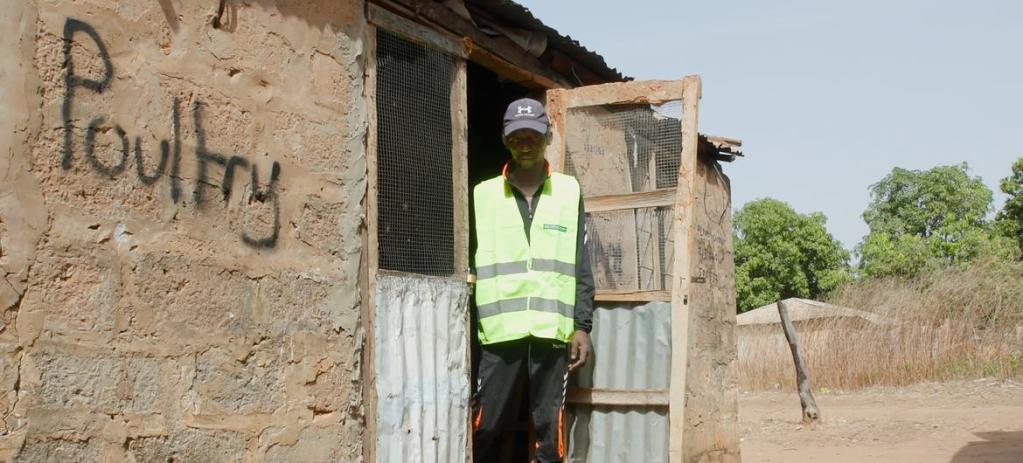
Story
01 June 2023
First Person: Starting from zero – Gambian returning migrant counts cost of attempted Europe crossing
“I’m from Jarra, a rural area in the Lower River Region of The Gambia, in the middle of the country. I moved to the capital, Banjul, when I was 15, to live with my brother and go to high school. I didn’t graduate, though, because we couldn’t afford the fees.
Around five years ago, when I was about 20, my friends encouraged me to leave The Gambia. This is not a wealthy country, and we heard that people had left, and became successful in Europe, sending money back to their families.
I wanted to go to Italy, because I thought that this was the easiest European country to get to. I knew that many people had died trying to get to Europe, but I thought that I could make it.
The first step was neighbouring Senegal, and from there we got a bus to Mauritania. I stayed there, with my sister’s husband, for five months, doing construction work, and whatever I could, to earn money for the next stage of the journey.
From Mauritania I went to Mali. This was a very long bus journey, and it took about 12 hours to get to the capital, Bamako. There were many other Gambians on the bus. Then we went to Agadez, in central Niger, via Burkina Faso. At each stage, we had to pay to be allowed to continue. We felt in danger but, by that stage, it was too late to go back.
There were about 25 of us in an open pickup truck, driving through the desert, with no shade. It was very hot and uncomfortable. We drove for three days, sleeping in the desert. At night, it was very cold, and we had to buy blankets and big jackets to keep us warm.
‘I was scared they would shoot us’
Sometimes the drivers were nice people, but others were very harsh, and they would beat us. When we got into Libya, we were beaten, and all of our money was taken from us. Luckily, I had hidden some food in the bus. The people who beat us had guns, and I was very scared that they would shoot us.
The next stage of the journey was to Sabhā, in central Libya. Because I had no money, I had to stay in Sabhā for four months, finding work to pay for my fare to Tripoli.
When you travel from Sabhā to Tripoli, you have to be smuggled in. If you are seen, people might kill you, so I had to hide in a dark room with no lights for three days. This was during the civil war, and there was a lot of danger.
‘They shot the boat’
I had to wait over a year in Tripoli before I could get to the coast and take a boat for Italy. One of my brothers found the money for me to get a place on the boat. Before we set off, there was some shooting and we soon realized that our boat was taking on water:.
There were armed men who didn’t want us to leave for Europe, so they just shot the boat, not caring if any of us died in the water. Our only option was to turn back towards the Libyan coast and, when the boat had taken on too much water, we swam to shore.
When we arrived on shore, we were taken to a detention centre. We were beaten by soldiers, who told us to give them money, but I had nothing left. I had to stay there for two months in these harsh, dirty conditions. Our phones were taken from us so we couldn’t contact our families; many of them though that we were dead.
Starting again from zero
Eventually, people from the UN came to the centre. They gave us clothes and some food and offered us a voluntary flight back to The Gambia.
I was very sad: I had lost everything and would have to start again from zero. I didn’t want to return home, but I had no choice.
When I arrived in The Gambia, the UN migration agency (IOM) offered to help me to start a business. They asked me what I wanted to do and, because of my experience working in construction, I told them that I could sell cement.
They provided me with tailored in-kind support in the form of a cement business, but, unfortunately, the place I found to store the bags of cement was not protected from the weather: it was the rainy season, and the water reached all of the cement. It was ruined.
I went back to the UN to ask for more help, and they offered me skills training. This was very useful, and I was able to get a certificate and go back to working with aluminium. I got a job working in a friend’s shop in Banjul, which sells aluminium window frames.
In the future, once I can raise the money, I plan to open my own shop. I’m married now and I have two children. I want to succeed here now, and I wouldn’t try to retry that journey to Europe. It’s too risky. If you don’t succeed, you lose everything.”
Mr. Jobe’s training was provided as part of the Jobs, Skills and Finance for Women and Youth (JSF) programme in The Gambia, the flagship programme of the UN Capital Development Fund (UNCDF), in collaboration with International Trade Center (ITC), and funding from the European Development Fund.
JSF addresses persistent challenges in The Gambia which include lack of job opportunities for youth and women, low levels of financial inclusion and climate change adaptation and mitigation.
The programme supports Target 8.3 of Sustainable Development Goal 8, which calls for the promotion of development-oriented policies that support productive activities, decent job creation, entrepreneurship, creativity and innovation, and encourage the formalization and growth of micro, small and medium-sized enterprises, including through access to financial services.
1 of 5
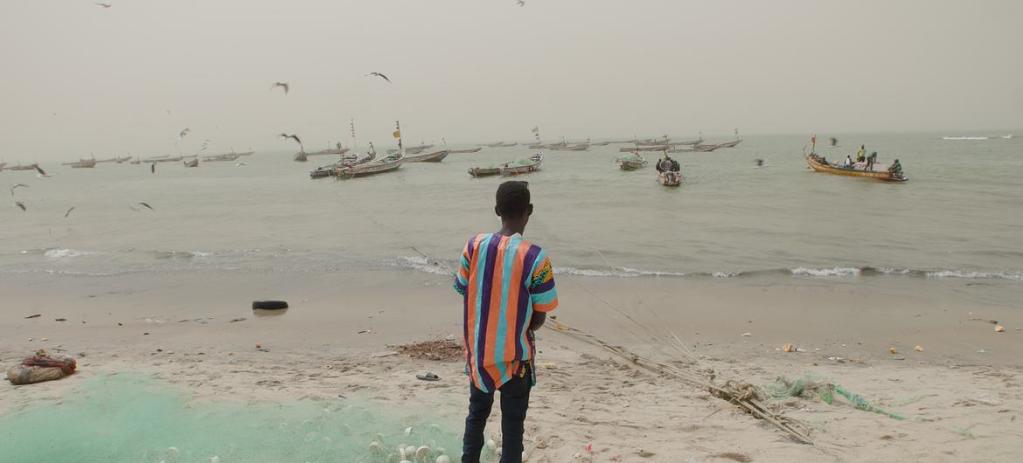
Story
14 July 2025
The Dual Burden of Migration: Understanding the Plight of Families Left Behind in The Gambia
“Your father accepted your hand in marriage on your behalf, in fact, your soon-to-be husband is abroad. You’ve made us all proud!”On the only mattress in her one-bedroom apartment — shared with her mom, sister and daughter — Tida Sonko* vividly recalls the night her parents agreed to her bride price. For her mother, it was a moment of immeasurable joy, fulfilling what she considered a treasured societal parental obligation: raising a daughter and witnessing her marriage.Tida knew little about her soon-to-be husband, apart from the fact that he had been living in Côte d’Ivoire for a decade. Though this caused her some anxiety, the enthusiasm of her parents, friends and relatives gradually dispelled her unease. Their celebration of marrying a man abroad overshadowed her initial doubts.“I never met the man, so I had no idea who I was marrying,” she admits. “This made me uncomfortable initially, but almost everyone told me he’s abroad so my life will be transformed,” she adds.In late 2019, Tida’s traditional wedding took place. Her husband Karamba Saidy* returned to The Gambia to meet his bride for the first time. He stayed for a little over three months before heading back to Côte d’Ivoire, promising Tida — pregnant at the time — that she would join him soon.Now, five years later, Tida is still waiting for Karamba’s return. She has been left with the full weight of managing her household and caring for her mom, sister and daughter. This includes responsibilities like domestic care work, education, healthcare and meeting daily needs. With her husband’s ongoing struggles in Côte d’Ivoire, Tida sees no signs of improvement in her situation. Additionally, her worries are compounded by societal expectations that a husband living abroad should consistently send money home. The pressure from Tida’s community stems from a stigma associated with her circumstances, making it difficult for her to seek assistance and overcome the status quo. “My husband does not have any decent job and therefore is unable to take care of us,” she says. “I cannot explain this to everyone because society has certain expectations, this makes our circumstances hard,” she adds.Tida and her family’s reality is no different from many in The Gambia, where many (male) spouses migrate, leaving women and families to face relentless challenges in meeting their basic needs.According to the UNDESA, there are about 72,000 Gambians living outside their country of origin in 2024. Tida’s case exemplifies a widespread issue: families left behind by Gambian migrants face a dual burden of economic hardship and the absence of the household primary caregiver — quite often a husband and a father.In response to this complex issue, IOM The Gambia launched a targeted project in January 2024. Partnering with the Ministry of Interior, the Ministry of Gender, Children and Social Welfare and supported by the IOM Development Fund, this research and capacity development project — Building Evidence and Developing Capacity to Inform Policy and Programmatic Response for the Protection of Families Left Behind in The Gambia — set out to better understand and address the challenges faced by these families. “Ensuring migration is well-managed to benefit all is top priority for us as a Ministry and Government. We cannot deliver our shared objectives in this without mechanisms — including policies and programmes for the protection and safety of women and children in vulnerable conditions as a result of migration.”Abraham K Mendy, Deputy Permanent Secretary, Ministry of Interior, The GambiaThis initiative seeks to overcome the challenges of finding evidence on migration’s impact on vulnerable families. By focusing on gender-sensitive approaches and targeting the Central River and Upper River Regions, it aims to support the government’s efforts to protect families left behind while enhancing their role in sustainable development.“We recognize the importance of migration to the socioeconomic development of The Gambia, and this even needs further harnessing; however, we cannot lose sight of vulnerabilities as a result of migration, especially on women and children. We cannot address these without evidence, hence the significance of this project.”Marie Stella Ndiaye, Programme Manager, IOM The GambiaIn June 2024, IOM and partners began conducting an assessment that collected key information from a cross-section of the Gambian society. The findings underscored the unique challenges and opportunities migration creates for families left behind. Women, particularly wives of migrants, are disproportionately affected. It was found that females make up 55.3 per cent of family members left behind, and that wives account for 81.7 per cent of spouses left behind. This highlights the gendered dimensions of migration and the importance of evidence-based research on these issues.The project involved capacity development activities targeting government officials, state and non-state actors to improve the general understanding of the protection of women and children’s rights. These also aimed to improve the impact of migration on families left behind. By reinforcing its commitments, IOM, alongside the government, has taken significant strides towards strengthening policies and programmes aimed at social protection and safety nets — particularly for women and children.While Tida’s story is emblematic of a wider reality, these efforts align with key frameworks, including the Government’s Recovery Focused National Development Plan RF-NDP (2023–2027), the United Nations Sustainable Development Cooperation Framework (UNSDCF) 2024–2028, the Global Compact on Migration (GCM) Objectives 2 (Minimize Adverse Drivers), 6 (Recruitment and Decent Work), 7 (Reduce Vulnerability), and 22 (Social Protection), and the Sustainable Development Goals.
1 of 5
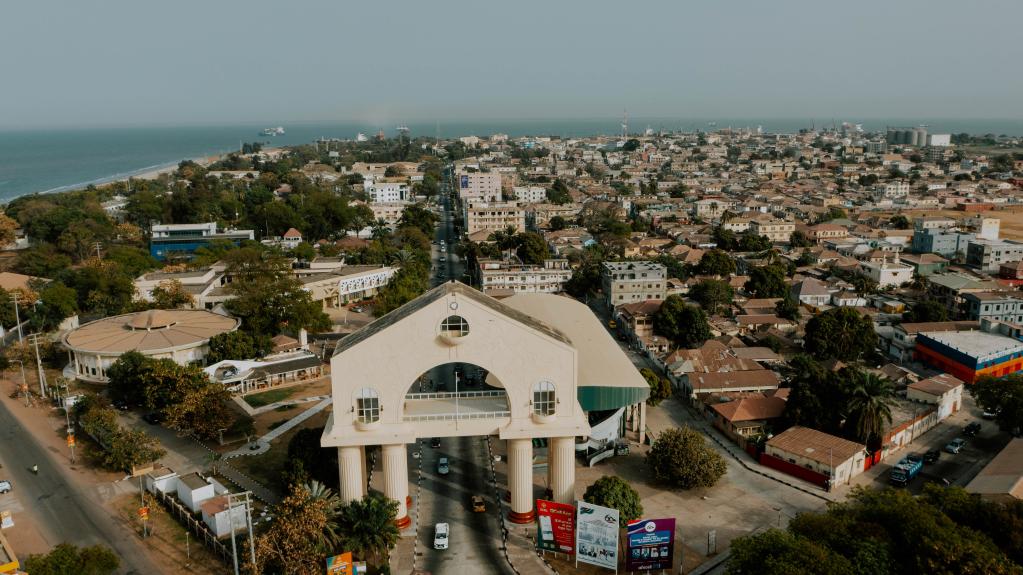
Story
14 July 2025
Stitching a Brighter Future: The Transformative Journey of a Trafficking Survivor
In the bustling heart of Serrekunda, 19-year-old Fatou Jobe* once dreamed of gracing runways with her fashion designs. “I love fashion. I wanted to become a fashion designer,” she recalls, her voice tinged with both nostalgia and newfound determination. What she didn’t foresee, however, was that her path to this dream would pass through one of the darkest experiences a young woman could endure: surviving human trafficking.Fatou’s journey began like that of many others. Coming from a modest background and having been forced to leave school due to financial hardship, her opportunities for employment were nearly nonexistent. “I am not from a rich family, so when things got tough, I had to sacrifice my education,” she says. “I dropped out of school,” she adds, her disappointment evident.Caught between economic hardship and the allure of opportunities abroad – a narrative deeply ingrained in many communities – Fatou was vulnerable. She was approached with what seemed like a lifeline: a promise of a well-paying job in Cairo, Egypt. “I was desperate to make money to support my family,” she explains. “She [my trafficker] told me I was going to secure a good job to earn a decent income. This enticed me and led me into my reality.”Despite her initial misgivings – how fast everything was arranged and the fact that it cost her nothing – she accepted the offer. Her journey from Banjul through Casablanca to Cairo was swift and shrouded in uncertainty. Upon arrival, she met her trafficker’s husband. In a terrifying turn of events typical in trafficking scenarios, he confiscated her passport and handed her over to unknown men. “That was just the beginning,” Fatou says.Over the next eight months, Fatou was forced to work in four different homes under grueling conditions. The treatment she endured was degrading and abusive. At her final placement, the situation worsened. She was made to work almost non-stop and suffered repeated sexual abuse, eventually becoming pregnant. “The last workplace was the worst of all,” she reveals. “I worked – as a maid – day and night with little to no time to rest. And my ‘master’ raped me whenever he felt like.”Realizing the promise of a “good job” was a lie, and with her pregnancy progressing, Fatou made the courageous decision to return home. “The suffering was too much. I was pregnant, so I decided to voluntarily return,” she says.In October 2023, she returned to The Gambia under the EU-funded Migrant Protection, Return and Reintegration Programme in Sub-Saharan Africa (MPRR-SSA), which supports migrants with voluntary return and sustainable reintegration. Fatou feared judgment and stigma, but the sight of her father waiting for her at Banjul International Airport washed away her worries. “It was heartwarming to return and my dad receiving me with open arms,” she beams.Upon arrival, she was provided with temporary accommodation and prenatal medical care. “I was given temporary accommodation, and the IOM medical team provided the necessary support until I delivered,” she notes. In due time, she gave birth to a healthy baby girl – Mariama, the light at the end of her harrowing journey.Through EU-funded reintegration assistance, Fatou received a cash-based intervention that allowed her to pursue her dream. She opened a small tailoring business, which now helps support her and her daughter. “I was paying a lot of money for rent and this was not sustainable, so I decided to close the shop and now work in my house,” she shares. “I am now using TikTok and Instagram to reach out to possible buyers, and this is paying off,” she adds with optimism.Fatou is committed to turning her painful experience into purpose. She hopes her journey will inspire others – especially young women facing similar crossroads – to remain hopeful, resilient, and courageous.
1 of 5
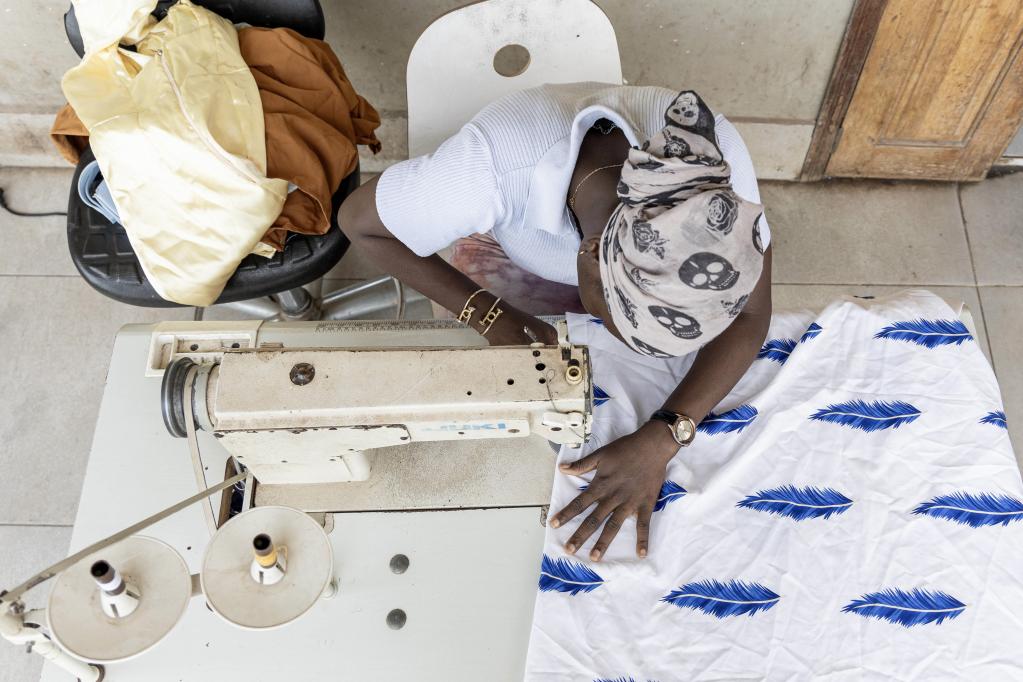
Story
09 July 2025
From Online to Onstage: A First-Timer’s Experience at a Trade Fair
Participating in trade shows is crucial for the growth of small businesses. It provides small businesses opportunities to sell, network and enhance their visibility. Yet, many entrepreneurs, especially in least developed countries, struggle to participate in trade fairs due to high costs. That was the case for Mariama S. Ceesay, founder of Her Sacred Veil, a bespoke fashion brand in The Gambia.“I had never participated in a trade show before because I did not have the financial means to cover the cost of a stall,” Mariama shared. “As a small business owner, most of my resources were focused on production and fulfilling customer orders.”That changed when the European Union Youth Empowerment Project – Tourism and Creative Industries, funded by the European Union and implemented by the International Trade Centre (ITC), stepped in. The project covered 90% of her stall fee, provided training and visibility products.“The project offered training and helped with branding. I was also given an e-business card to enhance my professional image. Additionally, they organized engaging activities around our stalls to attract more visitors and increase visibility for our businesses,” she said.Before the fair, Her Sacred Veil operated mostly online. “I was mainly selling my products online through TikTok and WhatsApp. I used TikTok to showcase my products and reach a wider audience, while WhatsApp helped me manage orders and communicate directly with customers,” Mariama explained. At the trade fair, she displayed her bespoke pieces, garments she designed to style and personality of customers. “I used the opportunity to show the quality, creativity and craftsmanship that go into every outfit I design,” she said. For a first timer, the experience was a breakthrough. Mariama made some sales, gained customers and built network. “I gained some new customers and received a few orders during and after the trade fair. I also made some useful business contacts that could lead to future opportunities,” she noted.The highlight for Mariam was connecting directly with new customers and hearing their positive feedback about her bespoke outfits. “It was also exciting to see people appreciate my designs in person and place orders on the spot.”Still, there were challenges. She did not hit her target in terms of sales, but the trade fair for her is much more than making sales. “Sales were lower than expected, but I learned a lot, especially about converting interest into purchases.”Now, she is thinking bigger. She plans to attend more fairs and seek for support to acquire equipment and a showroom. “I’m currently working with one sewing machine. I dream of getting an overlock machine and creating a space that truly showcases my brand.”
1 of 5
Story
08 July 2025
UN Deputy Secretary-General Reinforces Partnership with The Gambia to Accelerate SDG Progress and Youth Empowerment
The UN Deputy Secretary-General Amina J Mohammed concluded a strategic visit to The Gambia on 7 July 2025, reinforcing the UN’s commitment to supporting the country's development priorities and accelerating progress toward the Sustainable Development Goals (SDGs) through strengthened partnerships and innovative local solutions. During her visit, the Deputy Secretary-General held crucial discussions with His Excellency the President, emphasizing mutual commitment to working together on Gambia's development priorities, SDG acceleration, and ongoing reform efforts. The engagements underscored the UN's dedication to supporting The Gambia's transformation agenda while ensuring alignment with global development frameworks. "No single person or party can attain the SDGs," emphasized Deputy Secretary-General Mohammed. "It requires everyone's efforts from government leaders to grassroots communities, from international partners to local innovators."The Deputy Secretary-General's comprehensive engagement included productive meetings with the First Lady, the Minister of Foreign Affairs, International Cooperation and Gambians Abroad, the Minister of Finance and Economic Affairs, the UN Country Team, and members of the diplomatic community and development partners. These discussions focused on strengthening multi-stakeholder collaboration across key priority areas including youth empowerment, gender equality, economic development, climate action, transitional justice, and the principle of leaving no one behind. A highlight of the visit was the Deputy Secretary-General's tour of the Bakoteh Production and Innovation Centre, a flagship initiative under the Youth Empowerment Project representing a transformative partnership between the United Nations and Kanifing Municipal Council. The Centre exemplifies how local innovation can drive global progress, providing fully-funded training programs in sewing, weaving, and other marketable skills to young people, with a particular focus on empowering women, creating a production hub that bridges skills development with economic opportunity. During her visit, the Deputy Secretary-General witnessed firsthand how young women are being equipped with technical skills and entrepreneurial capabilities, transforming not only their individual prospects but contributing to broader community development and national economic growth. The success of the Center reflects effective partnership between international organizations, local government, and communities – a model that can be replicated and scaled across the country and region which can contribute meaningfully to global progress toward the 2030 Agenda. Discussions with the diplomatic community and development partners emphasized the need for coordinated support that responds to local priorities while contributing to global development objectives, as well as using the upcoming reforms as opportunities, including the financing for the development. The engagement reinforced The Gambia's position as a country making significant strides in democratic governance, social inclusion, and sustainable development.The Deputy Secretary-General's visit concluded with a renewed commitment of the United Nations to supporting The Gambia's development journey through enhanced partnership, innovative solutions, unwavering commitment to leaving no one behind and sustained collaboration to achieve the SDGs. As The Gambia continues its journey of reform, the UN remains committed to supporting initiatives that empower youth, advance gender equality, promote climate resilience and create sustainable opportunities for all Gambians.
1 of 5
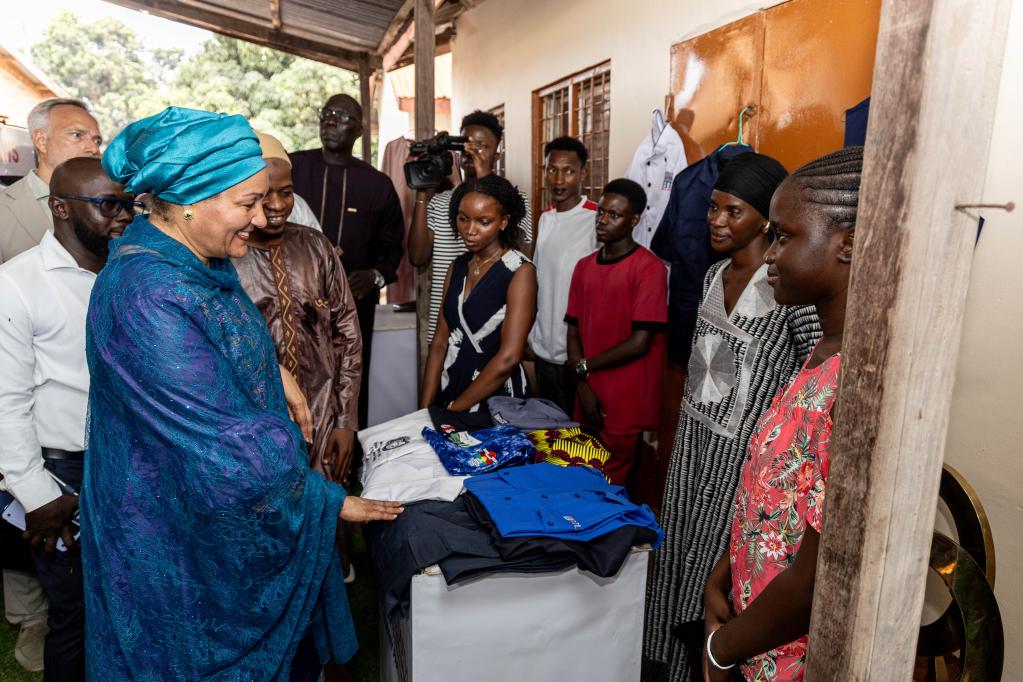
Story
01 July 2025
Rewiring Expectations: A Girl's Story in a Man's Field
When Ramatoulie Sanneh heard about the TVET scholarship opportunity for young people in Foni, she did not hesitate. The programme provided training in solar and electrical installations, plumbing and pipefitting and beauty and hairdressing. She chose solar and electrical installations.It was not the “expected” choice. And her community did not stay quiet about it.“Some people asked, ‘Why would a girl go into that? It is a man’s field,’” she recalls. “But I did not let that stop me. I know what I want.”For Ramatoulie, who comes from Foni Dumbuto, a region rich in culture and diversity located on The Gambia’s West Coast, her choice carried even greater meaning. Foni is home to people of different religious, ethnic and political backgrounds and shares a border with the Casamance region of Senegal, which has faced instability for decades. Foni has experienced social and economic exclusion.For her, this was about more than just breaking into a male-dominated trade. She had two clear goals: to become financially independent and to be a role model for other girls in her community.Ramatoulie had not been able to complete her secondary education due to financial constraints. To support herself, she took a job at a company that sells sachet water, but left on personal grounds.Now, fully enrolled and hands-on in her training, she is doing exactly what she set out to do.“When we are having practicals, I always ask someone to record me,” she says. “When I go home, I show the videos to the girls in the village. They see me, someone like them, from here, with a helmet on, doing electrical work. They get excited. They say, ‘I want to be like you.’”Ramatoulie is one of 100 young people currently benefiting from the TVET scholarship under the Infrastructure for Peace Project, implemented by the International Trade Centre in collaboration with UNDP and UNESCO. The project strengthens The Gambia’s national peacebuilding architecture by using sports, arts and economic empowerment to promote social cohesion. It also reaffirms the importance of working together as one UN to accelerate progress on the Sustainable Development Goals.But her dream does not end with training.Ramatoulie plans to start her own business, offering small-scale electrical services and to continue enhancing her skills. More importantly, she wants to keep inspiring girls to step outside the boxes society has placed them in.“Now, I can say I am a mentor to many of these girls,” she says, smiling. “And it means everything to me that they see me and think, ‘If she can do it, maybe I can too.’”Ramatoulie is living proof of the saying: when one girl rises, she brings others with her.
1 of 5
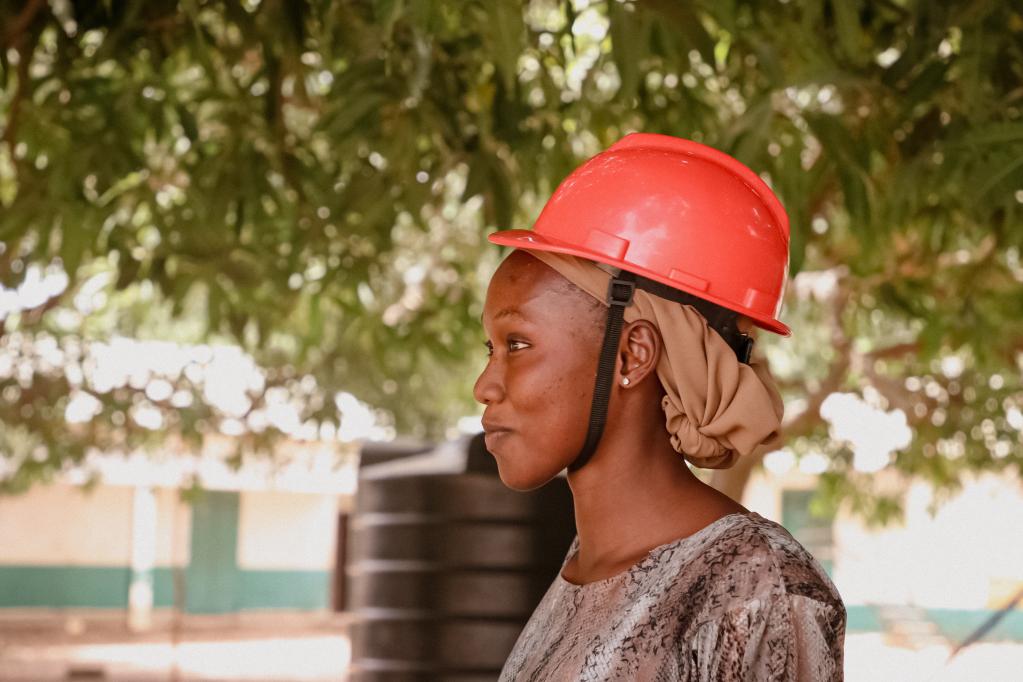
Press Release
09 January 2026
Strengthening Agricultural Data Collection Through Improved Operational Mobility in The Gambia
● UNOPS officially hands over 85 motorcycles and safety equipment to the Gambia
Bureau of Statistics under the World Bank-funded HISWACA programme
● The delivered equipment is aimed at enhancing GBOS operational mobility to collect
high-quality harmonized data across the country, in preparation for the 2026
National Agricultural Sample Census.
Banjul, Gambia.— UNOPS officially handed over 85 motorcycles and related safety equipment to the Gambia Bureau of Statistics (GBOS), thereby enhancing the institution’s capacity to gather timely and high-quality data across the country.
The handover marks a key milestone under the World Bank-funded regional statistics harmonization and improvement programme, HISWACA, designed to improve country statistical performance, regional harmonization, data access and use, and to enhance modernization of the statistical system across West Africa.
During the ceremony held at the GBOS premises, UNOPS delivered 85 motorcycles, along with associated safety equipment, ensuring that enumerators and field staff can execute their duties safely and effectively. This support will also encompass the procurement and delivery of two SUVs, further enhancing GBOS's logistical capabilities and operational mobility, particularly in hard-to-reach areas.
The newly delivered motorcycles and equipment are essential for supporting the GBOS’s preparations for the upcoming Agricultural Census scheduled for 2026, enabling field teams to reach communities nationwide. The new National Agricultural Sample Census will gather crucial information on farming practices, livestock and livelihoods, serving as a
reliable basis for agricultural planning and policy and to support food security and poverty alleviation strategies.
ENDS
Notes to the editors: Press contact details:
Souhaila Merzougui, Communications Senior Officer, UNOPS West Africa Multi Country Office | souhailam@unops.org
About UNOPS
UNOPS offers practical solutions across peace and security, humanitarian and development operations. We help the United Nations, governments and other partners to manage projects, and deliver sustainable infrastructure and procurement across the world.
Read more: www.unops.org.
About the World Bank
The World Bank Group is an international development organization with 189 member countries. It works to reduce poverty and boost shared prosperity on a livable planet by providing policy advice, technical expertise, and financing to the governments of low- and middle-income countries.
Bureau of Statistics under the World Bank-funded HISWACA programme
● The delivered equipment is aimed at enhancing GBOS operational mobility to collect
high-quality harmonized data across the country, in preparation for the 2026
National Agricultural Sample Census.
Banjul, Gambia.— UNOPS officially handed over 85 motorcycles and related safety equipment to the Gambia Bureau of Statistics (GBOS), thereby enhancing the institution’s capacity to gather timely and high-quality data across the country.
The handover marks a key milestone under the World Bank-funded regional statistics harmonization and improvement programme, HISWACA, designed to improve country statistical performance, regional harmonization, data access and use, and to enhance modernization of the statistical system across West Africa.
During the ceremony held at the GBOS premises, UNOPS delivered 85 motorcycles, along with associated safety equipment, ensuring that enumerators and field staff can execute their duties safely and effectively. This support will also encompass the procurement and delivery of two SUVs, further enhancing GBOS's logistical capabilities and operational mobility, particularly in hard-to-reach areas.
The newly delivered motorcycles and equipment are essential for supporting the GBOS’s preparations for the upcoming Agricultural Census scheduled for 2026, enabling field teams to reach communities nationwide. The new National Agricultural Sample Census will gather crucial information on farming practices, livestock and livelihoods, serving as a
reliable basis for agricultural planning and policy and to support food security and poverty alleviation strategies.
ENDS
Notes to the editors: Press contact details:
Souhaila Merzougui, Communications Senior Officer, UNOPS West Africa Multi Country Office | souhailam@unops.org
About UNOPS
UNOPS offers practical solutions across peace and security, humanitarian and development operations. We help the United Nations, governments and other partners to manage projects, and deliver sustainable infrastructure and procurement across the world.
Read more: www.unops.org.
About the World Bank
The World Bank Group is an international development organization with 189 member countries. It works to reduce poverty and boost shared prosperity on a livable planet by providing policy advice, technical expertise, and financing to the governments of low- and middle-income countries.
1 of 5
Press Release
10 December 2025
Press Release Human Rights Day 2025
On the occasion of Human Rights Day 2025, the United Nations in The Gambia joins the global community in commemorating the Universal Declaration of Human Rights (UDHR) which was adopted on today’s date in 1948. Today, we renew our collective commitment to safeguarding the dignity and rights of all people, and this year’s theme, “Our Everyday Essentials”, is a powerful reminder that human rights are not abstract ideals reserved for special occasions, but they are the fundamental conditions that shape our daily lives.As enshrined in the UDHR, everyone regardless of background, identity, or circumstance depends on essential rights to live with dignity and freedom. Health care, education, clean water, food security, justice, freedom: these aren't luxuries. They're the essentials that transform rights on paper into dignity in practice. When basic human rights are respected, protected, and realized, societies become more resilient, inclusive, and equitable.In The Gambia, progress continues in strengthening democratic governance, expanding civic participation, advancing women's and children's rights, and implementing recommendations of the Truth, Reconciliation and Reparations Commission. Yet challenges persist: gender-based violence, harmful traditional practices, climate vulnerability, and inequalities affecting women, persons with disabilities, youth, and marginalized communities.As we commemorate the 76th anniversary of the UDHR, the United Nations in The Gambia encourages all partners to build a society where every person can access the essentials for a dignified life. Ensuring human rights is central to achieving the Sustainable Development Goals and sustaining the gains of The Gambia's democratic transition.Through joint programs and partnerships, the UN continues to support national institutions, civil society organizations, and communities to strengthen access to justice, expand health and education services, support security sector reform, and advance peacebuilding processes.The UN Resident Coordinator calls on all Gambians, policymakers and communities, religious leaders and youth, media and civil society, women's groups and the private sector to champion the rights that sustain everyday life. Human Rights Day 2025 reminds us that dignity begins at home, in our communities, and in our daily choices.
1 of 5
Press Release
05 December 2025
Peacebuilding Fund Partners Mission to The Gambia
The United Nations Resident Coordinator’s Office, and the Peacebuilding Fund (PBF) Secretariat in The Gambia will welcome a high-level Donor mission led by the Peacebuilding Support Office (PBSO) to Banjul from 8 to 12 December 2025. This mission aims to strengthen partnerships, showcase peacebuilding achievements, and explore opportunities for sustained collaboration in advancing The Gambia’s peace and development agenda.Since 2017, the Peacebuilding Fund has played a pivotal role in supporting The Gambia’s transition and peacebuilding priorities, including transitional justice, inclusive governance, social cohesion, land and natural resource management, gender equality, and youth empowerment. The upcoming mission will provide an opportunity for partners to engage
directly with national stakeholders, civil society, and communities benefiting from PBF supported projects, while assessing progress and identifying lessons learned for future programming.
The mission will feature high-level meetings with the Government of The Gambia, including the Office of the President, the Ministry of Foreign Affairs, Ministry of Gender, Ministry of Interior and the Office of National Security. Delegates will also visit Upper River Region and Central River Region to observe community peacebuilding initiatives, gender empowerment programs, and cross-border cooperation projects. In addition, engagements with civil society
organizations will focus on transitional justice, human rights, and youth inclusion, culminating in a CSO convening on youth, media, and peace.
Speaking ahead of the mission, M. Karl-Fredrick Paul, UN Resident Coordinator in The Gambia, stated: “This visit is a testament to the strong partnership between The Gambia and the United Nations in advancing peacebuilding and inclusive development. It will provide an opportunity to showcase achievements, assess remaining challenges, and engage in fruitful discussions to chart a path forward for sustaining peace.”
Ms. Bushra Hassan, representing the UN Peacebuilding Support Office, and leading the delegation, added: "The Peacebuilding Fund is proud to accompany The Gambia as it advances nationally led efforts to consolidate peace and build strong institutions. This mission enables us to hear directly from Government and community actors so the Fund can remain aligned with their priorities and aspirations."
The mission is expected to enhance visibility of peacebuilding achievements and challenges in The Gambia, strengthen collaboration between national actors, civil society, and international partners, and generate recommendations to inform future peacebuilding strategies and resource mobilization efforts.
directly with national stakeholders, civil society, and communities benefiting from PBF supported projects, while assessing progress and identifying lessons learned for future programming.
The mission will feature high-level meetings with the Government of The Gambia, including the Office of the President, the Ministry of Foreign Affairs, Ministry of Gender, Ministry of Interior and the Office of National Security. Delegates will also visit Upper River Region and Central River Region to observe community peacebuilding initiatives, gender empowerment programs, and cross-border cooperation projects. In addition, engagements with civil society
organizations will focus on transitional justice, human rights, and youth inclusion, culminating in a CSO convening on youth, media, and peace.
Speaking ahead of the mission, M. Karl-Fredrick Paul, UN Resident Coordinator in The Gambia, stated: “This visit is a testament to the strong partnership between The Gambia and the United Nations in advancing peacebuilding and inclusive development. It will provide an opportunity to showcase achievements, assess remaining challenges, and engage in fruitful discussions to chart a path forward for sustaining peace.”
Ms. Bushra Hassan, representing the UN Peacebuilding Support Office, and leading the delegation, added: "The Peacebuilding Fund is proud to accompany The Gambia as it advances nationally led efforts to consolidate peace and build strong institutions. This mission enables us to hear directly from Government and community actors so the Fund can remain aligned with their priorities and aspirations."
The mission is expected to enhance visibility of peacebuilding achievements and challenges in The Gambia, strengthen collaboration between national actors, civil society, and international partners, and generate recommendations to inform future peacebuilding strategies and resource mobilization efforts.
1 of 5
Press Release
14 August 2025
Statement by the United Nations in The Gambia on the Death of a One-Month-Old Girl Following alleged Female Genital Mutilation
The United Nations in The Gambia expresses its profound sorrow and strong condemnation following the death of a one-month-old girl resulting from alleged Female Genital Mutilation (FGM) based on available information. This tragic incident is a stark reminder of the urgent need to end this harmful practice, which the United Nations Secretary-General has described as “ a horrific act of gender-based violence.”While the United Nations respects cultural and religious traditions, these cannot be invoked to justify practices that inflict immediate and lifelong health and psychosocial harm to women and girls. As affirmed in the United Nations Declaration on the Elimination of Violence Against Women, States “should condemn violence against women and should not invoke any custom, tradition, or religious consideration to avoid their obligations with respect to its elimination.”FGM is a criminal offence under the Gambian Women (Amendment) Act, 2015, and contravenes The Gambia’s obligations under multiple international and regional instruments, including the Convention on the Rights of the Child (CRC), the Convention on the Elimination of All Forms of Discrimination against Women (CEDAW), the African Charter on the Rights and Welfare of the Child (ACRWC), the Protocol to the African Charter on Human and Peoples’ Rights on the Rights of Women in Africa (Maputo Protocol), and the African Union’s Agenda 2063. The law must be fully and consistently enforced. Accountability is essential for anyone who performs, procures, facilitates or condones FGM.The United Nations commends the Gambia Police Force and the Ministry of Health for their swift response and commitment to enforcing the law. We urge all authorities to ensure that justice is served and that those responsible for this act are held fully accountable. We also applaud the Bundung Maternal Health Centre for its vigilance in reporting these cases and safeguarding the lives of women and children.With 73 per cent of women aged 15 to 49 affected, The Gambia remains among the countries with the highest prevalence of FGM globally. This practice continues to endanger the health, rights and lives of girls and women across the country.The United Nations reaffirms its commitment to supporting national efforts to eliminate FGM. We stand firmly alongside the tireless work of the Government, civil society organizations, faith-based groups, youth leaders, survivors and community movements in promoting the dignity, rights and well-being of women and girls.No child should ever suffer or lose their life to a practice that is entirely preventable. The United Nations in The Gambia will continue working with the Government to advance sustainable development and ensure the protection and rights of every child and individual, leaving no one behind.
1 of 5
Press Release
07 March 2025
Message from the UN Resident Coordinator in The Gambia to Commemorate International Women’s Day 2025
On International Women’s Day 2025, I join you all in celebrating women and girls worldwide, particularly in The Gambia.As we commemorate International Women’s Day, it is essential to remind ourselves that women’s rights are, without question, human rights. From the Universal Declaration of Human Rights (UDHR), the Convention on the Elimination of All Forms of Discrimination Against Women (CEDAW) and the Protocol to the African Charter on Human and Peoples' Rights on the Rights of Women in Africa, the international and regional human rights architecture affirms that women and girls are entitled to the full and equal enjoyment of their rights.The protection and advancement of women’s rights is also a crucial enabler of the achievement of the Sustainable Development Goals (SDGs).Investing in the rights of women and girls is an investment in the social, political, and economic well-being of nations. When women and girls are empowered and given equal opportunities to succeed, societies flourish, economies grow, and peace is more likely to be sustained. We must also recognize and address the specific challenges faced by vulnerable and often marginalized groups, such as women with disabilities amongst other who face intersectional discriminations and pronounced barriers to accessing their rights and opportunities.In 2025, we commemorate the 30th anniversary of the Beijing Declaration and Platform for Action, a landmark global framework for the advancement of gender equality and empowerment of women and girls. The anniversary is a moment for reflection, to acknowledge challenges and renew our commitment to break down barriers that impede the full realization and enjoyment of rights for women and girls in The Gambia. I commend The Gambia for its continued efforts to protect and promote the rights of women and girls. These actions reflect the Government’s commitment to upholding the principles of equality and non-discrimination.However, there is still work to be done and opportunities to sustain the progress achieved. We recognize that achieving gender equality requires sustained effort, including in the areas of participation, freedom from all forms of violence, freedom from discrimination and access to opportunities.The United Nations remains firmly committed to supporting The Gambia in its journey to achieve the full realization of the rights of women and girls including for vulnerable and marginalized groups.We recognize the important role of all our partners in this work, including the government, civil society organizations, women’s rights groups, development partners and the private sector. Your efforts are vital in advocating for legislative and policy change, providing essential services, and challenging harmful social norms. In a climate of shrinking resources and where fundamental human rights are being questioned, it is more than ever important that we stand firmly united. On this International Women’s Day, let us all reaffirm our collective commitment to ensuring that all women and girls in The Gambia live in dignity, free from violence and discrimination. Let us work together to protect their rights, empower them to reach their full potential, and create a Gambia where gender equality is no longer an aspiration, but a reality.
1 of 5
Latest Resources
1 / 11
1 / 11


